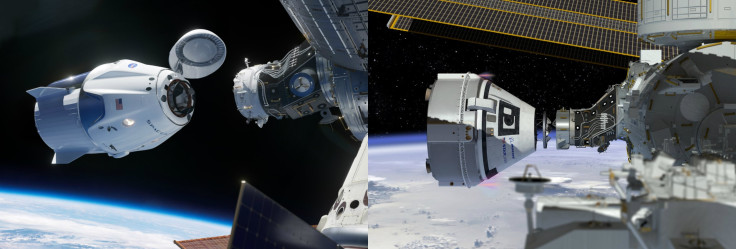SpaceX, Boeing Commercial Crew Flights Delayed, Won’t Happen Until 2019

The first manned spaceflights from American soil since the retirement of the Shuttle program in 2011 have been delayed.
On Aug. 2, NASA released a schedule for its commercial crew program confirming that human crews won’t fly on space capsules developed by SpaceX and Boeing until 2019.
According to the agency, SpaceX, which was scheduled to conduct a crewed demonstration in December, will now fly its Dragon spacecraft — atop a Falcon 9 rocket — in April next year. Meanwhile, Boeing’s CST-100 Starliner space capsule will follow up with a similar test in mid-2019, instead of November 2018.
The agency did not reveal the exact reason behind these delays, but the case of Boeing appears to be related to Starliner’s launch abort engines, which encountered a problem during a recent test. Back in June, several valves of the engines failed to close after ignition, leading to a propellant leak. Though the glitch did not affect hardware of the craft, Boeing has identified the source of the problem and is making necessary changes to avoid such issues in the future, SpaceNews reported.
As part of the crewed tests, both spacecraft will be used to take a pair of astronauts to and from the International Space Station, returning human spaceflight capabilities back to the United States. The astronauts on board will interact with the systems, communicate with mission control, and validate the suitability of the crafts for regular operational missions to the station — the ultimate goal of NASA’s Commercial Crew Program.
However, it is worth noting both companies don’t plan to launch astronauts right away. They will first conduct uncrewed flights of the spacecraft on their respective launch vehicles — Falcon 9 for SpaceX and United Launch Alliance’s Atlas V rocket for Boeing.
As per the updated timeline, Boeing plans to conduct the unmanned flight either later this year or in early 2019, while SpaceX is aiming for a launch in November 2018. Previously, both companies hoped to conduct this test by August 2018.
“This was above and beyond the NASA requirement in the contract,” Kathy Lueders, Commercial Crew Program manager, said in a statement. “Both partners said they really wanted to have an uncrewed flight test to make sure the integrated rockets, spacecraft and re-entry systems are all working as designed to be able to ensure the integrated system is functioning.”
On Aug. 3, NASA will announce the name of astronauts who will helm the spacecraft during test demonstrations as well as post-certification missions next year.
“The crew right now is actually working on integrated crew simulations on the flight systems. They are providing input to the partners to help ensure the interior of the cabin is appropriately located and set up so crew can function and conduct key activities,” Lueders added. “They’re verifying crew layout, doing simulations where they’re actually practicing their maneuvers, and also checking out the software and the display systems, and everything else for the crew to be functioning safely in the spacecraft.”
© Copyright IBTimes 2024. All rights reserved.




















